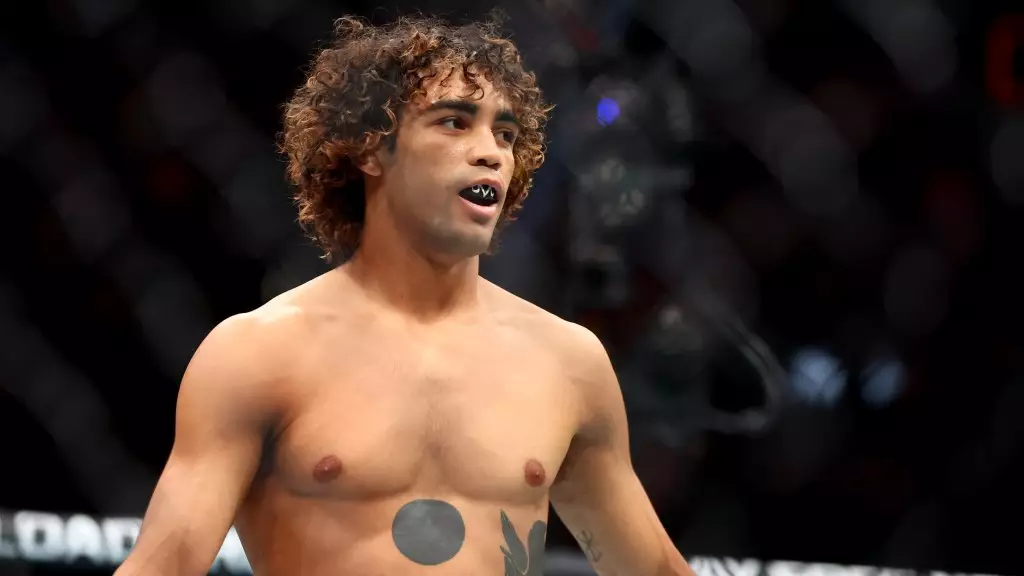Payton Talbott has quickly made a name for himself in the MMA landscape, boasting an impeccable record of 9-0 in mixed martial arts and an undefeated 3-0 in the UFC. As the 26-year-old fighter prepares for his upcoming bout against Raoni Barcelos, scheduled for January 18 at the Intuit Dome in Inglewood, California, the anticipation surrounding Talbott continues to grow. With his recent performances, including memorable knockouts that earned him the Performance of the Night accolades, it’s clear that Talbott is not only a formidable combatant but also a fighter with a vision that extends beyond the cage.
What sets Talbott apart isn’t just his prowess in the octagon; it’s his willingness to address broader societal issues—specifically, toxic masculinity and misogyny perpetuated by figures such as Andrew Tate. Shortly after UFC 311, Talbott candidly expressed his disdain for Tate’s controversial public persona, which has attracted a significant following but also sparked considerable criticism. By characterizing himself as the “antithesis” of Tate, Talbott is positioning himself as a counter-narrative in a world where many young men look up to controversial figures. His remarks during an appearance on “The Ariel Helwani Show” illustrate a profound understanding of the cultural impacts of such personalities: “He’s kind of a poison for masculine culture,” Talbott stated, shedding light on the detrimental influence of toxic viewpoints on male identity.
Talbott’s callout isn’t merely a desire for attention; it’s a courageous stance that demonstrates his belief in redefined masculinity—one that embraces strength, confidence, and respect rather than hostility and dominance. Instead of perpetuating harmful stereotypes, Talbott challenges the status quo by encouraging healthier expressions of masculinity that celebrate inclusivity and empathy. His comments reflect a deeper understanding of the conversation around masculinity, one that is becoming increasingly necessary in today’s societal climate.
The evolution of social media has amplified these discussions, enabling figures like Talbott to connect with younger audiences more intimately than traditional means. This has resulted in not only the dissemination of martial arts knowledge but also the promotion of healthier life philosophies. As Talbott prepares to collide with Barcelos, his intentions extend beyond sporting achievements. By calling for a match against Tate, he is challenging not only his opponent but also the mindset that Tate represents.
As Talbott’s star continues to rise in the UFC, he’s carving a unique niche as a role model for aspiring fighters. His approach advocates that strength comes not just from physical prowess but from integrity and respect. As he joins the fight against toxic masculinity within the sphere of combat sports, Talbott embodies a new wave of fighters—those who are committed to changing perceptions and redefining what it means to be a man in today’s world. Each strike he lands is not just a step towards victory in the sport but a blow against outdated norms that have long plagued discussions of masculinity.

